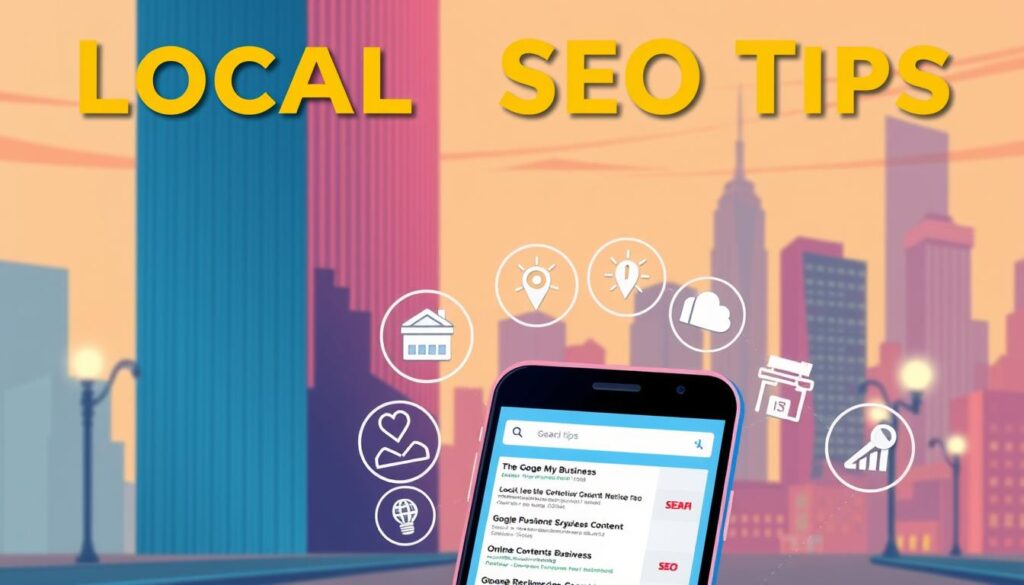In today’s digital age, a professional website is more than just a business tool—it’s a vital part of your brand’s identity. A well-designed website can make a strong first impression, enhance your credibility, and drive business growth. However, creating such a website requires more than just technical skills; it demands a deep understanding of your brand, industry, and audience needs.
While some businesses opt for a DIY approach, hiring a professional web design agency often yields better results. Not only does it save time, but it also ensures your website is optimised for performance, user experience, and search engines. With so many agencies available, selecting the right one can be overwhelming. This guide will walk you through the key considerations to help you make an informed decision.
Key Takeaways
- A professional website is crucial for establishing credibility and trust.
- A well-designed website enhances user experience and drives conversions.
- Hiring a web design agency saves time and ensures technical optimisation.
- Consider factors like portfolio, client reviews, and SEO expertise when choosing an agency.
- A collaborative approach with your agency ensures a tailored solution for your brand.
Understanding Your Website’s Role in Business Success
Your website serves as the digital storefront for your business, shaping how customers perceive your brand. A well-crafted site is not just a tool but a strategic asset that drives growth.
Visual Appeal and Functionality
Aesthetics and usability are crucial. A visually appealing site draws users in, while functionality ensures they stay. Striking this balance is key to engagement and satisfaction.
Studies show that visually attractive and responsive websites can boost conversion rates by up to 200% and reduce bounce rates significantly.
| Design Element | Impact on Engagement | Performance Benefit |
|---|---|---|
| Responsive Design | Adapts to all devices | 60% of users prefer mobile-friendly sites |
| Intuitive Navigation | Guides users seamlessly | Reduces bounce rates by 20% |
| Scrolling Banners | Captures attention effectively | Increases time spent on page |
Brand Credibility and Online Presence
A professional design builds trust. 94% of first impressions are design-related, making it vital for credibility. A slow-loading site can deter users, with a 7% drop in conversions for each second of delay.
Investing in quality design can yield up to 300% ROI, making it a wise business decision.
In conclusion, a website’s design significantly influences user engagement, brand trust, and business success. Ensuring it is both attractive and functional is essential for achieving your business goals.
Defining Your Business Goals and Website Requirements
Before diving into your website project, it’s crucial to have a clear understanding of your business goals and what your website needs to achieve. This clarity ensures your site is built to support your business objectives effectively.
Identifying Your Objectives and Target Audience
Start by outlining your business goals. Are you looking to increase sales, generate leads, or simply provide information? Knowing this will shape your website’s design and functionality. Understanding your target audience is equally important. Who are they? What problems can your website solve for them? A well-defined audience helps tailor the user experience to meet their needs.
Integrating Marketing Tools and CRM Systems
Your website should seamlessly integrate with your marketing tools and CRM systems. This integration allows for better customer management and more personalized experiences. For instance, linking your site with your email platform can enhance communication and improve conversion rates. Additionally, features like ecommerce functionality and secure transactions (SSL/HTTPS) are essential for building trust and ensuring safe operations.
| Feature | Benefit |
|---|---|
| Responsive Design | Adapts to all devices, improving user experience |
| Secure Transactions | Builds trust and protects customer data |
| Integrated CRM | Enhances customer management and personalization |
how to choose a web design agency
Selecting the right web design agency is a crucial decision for your business. With numerous options available, it’s important to evaluate their service offerings and expertise carefully. Start by reviewing their portfolios and case studies to understand their capabilities and experience across various industries.
Evaluating Service Offerings and Expertise
A good agency should offer a wide range of services, including web design, SEO, and marketing. They should also be transparent about their methodologies and willing to provide detailed case studies. Look for agencies that have worked with businesses similar to yours, as this indicates they understand your specific needs.
Comparing Agency Portfolios and Past Projects
When comparing portfolios, pay attention to the diversity of projects and the quality of their work. A diverse portfolio suggests flexibility and adaptability. Additionally, check for client reviews and testimonials to gauge their credibility and client satisfaction.
By carefully evaluating these factors, you can make an informed decision and choose an agency that aligns with your business goals and ensures a successful project outcome.
Assessing Agency Experience and Industry Expertise
A web design agency’s experience and industry expertise are pivotal in ensuring your project’s success. By examining their track record, you can gauge their ability to deliver results that align with your business objectives.
Reviewing Case Studies and Success Stories
Case studies offer a window into an agency’s capabilities. They reveal how the agency has tackled challenges and the results achieved. Success stories highlight their problem-solving skills and ability to deliver measurable outcomes.
| Project Type | Goals | Strategy | Outcome |
|---|---|---|---|
| E-commerce Platform | Increase online sales by 30% | Responsive design, SEO optimization | Exceeded target by 35% in 6 months |
| Corporate Website | Enhance brand credibility | Modern design, intuitive navigation | Improved user engagement by 40% |
| Service Industry Site | Boost lead generation | CTA optimization, mobile-first approach | Lead generation increased by 25% |
These examples demonstrate how a skilled agency can drive significant improvements across various industries.
Understanding Multi-Industry Capabilities
An agency with experience across multiple industries brings versatility to your project. They can adapt strategies from different sectors, offering innovative solutions tailored to your needs. For instance, techniques from e-commerce can enhance a corporate site’s user experience.
Agencies with diverse portfolios often deliver consistent, high-quality results. They manage expectations effectively, ensuring projects are completed on time and within budget. Their ability to adapt to industry trends and technologies keeps your website competitive.
When selecting a web design agency, prioritize those with a strong track record and diverse experience. This ensures they can handle your specific needs and deliver a website that exceeds your expectations. For more insights, visit How to Choose Your Web Design.
Evaluating Technical Expertise, SEO and UX
When selecting a web design agency, it’s crucial to assess their technical expertise, SEO capabilities, and commitment to user experience (UX). These factors directly impact your website’s performance, search engine rankings, and user satisfaction.
Technical Proficiency and CMS Knowledge
A reputable agency should demonstrate proficiency in Content Management Systems (CMS) like WordPress, Magento, or Drupal. These platforms are essential for creating flexible and scalable websites. Additionally, they should be skilled in ensuring your site is optimised for speed, mobile responsiveness, and overall performance. A slow-loading website can deter users, with a 7% drop in conversions for each second of delay.
| Technical Expertise | SEO Impact | Performance Benefits |
|---|---|---|
| Responsive Design | Improves mobile search rankings | Enhances user experience across devices |
| Optimised Coding | Increases site speed, boosting SEO | Reduces bounce rates and improves conversion |
| Secure Transactions | Builds trust with search engines | Protects customer data and ensures safe transactions |
Optimisation for SEO, Performance, and Mobile Use
A good technical setup is vital for effective on-site SEO. This includes proper URL structures, meta tags, and image optimisation. Mobile responsiveness is equally important, as 85% of users expect a mobile website to be as good as or better than a desktop site. Agencies should also prioritise UX optimisation, ensuring intuitive navigation and reducing bounce rates.
By evaluating these factors, you can ensure your website is technically sound, SEO-friendly, and user-centric, driving better performance and higher conversion rates.
The Importance of Responsive and User-Centred Design
In today’s mobile-first world, responsive design is no longer an option—it’s essential. With over 50% of internet traffic coming from mobile devices, your website must adapt seamlessly to different screens to capture this audience.
Ensuring a Seamless Mobile Experience
Responsive design ensures your website looks and functions perfectly on all devices, from smartphones to desktops. This adaptability is crucial for user satisfaction and engagement. Studies show that 57% of users won’t recommend sites with poor mobile design, highlighting the importance of a responsive layout.
| Design Aspect | Mobile Benefit | SEO Impact |
|---|---|---|
| Fluid Grid System | Adapts layouts proportionally | Enhances mobile search rankings |
| Media Queries | Applies styles based on device | Improves site speed and performance |
| Touch-Friendly Navigation | Simplifies user interaction | Reduces bounce rates |
Responsive design not only improves user experience but also boosts SEO rankings, as search engines prioritize mobile-optimised sites.For instance, companies like Apple exemplify successful responsive design, offering consistent experiences across devices. By prioritising mobile users and incorporating user feedback, you can create a website that truly meets their needs and expectations. For more insights, visitWhy Responsive Design is Important.
Budget Considerations and Long-term Value
When planning your website project, budget considerations are crucial to ensure long-term value. While it’s natural to focus on upfront costs, it’s equally important to evaluate the potential return on investment (ROI) your website can deliver.
Cost-Benefit Analysis and Investment Returns
A well-designed website can significantly boost your business’s profitability. For instance, a £5,000 investment in a professional web design could lead to a 20% increase in sales, effectively paying for itself within a year. This makes it a wise investment rather than a mere expense.
Planning for Future Web Development and Support
Consider future costs, such as updates, security, and maintenance. A reliable web design agency often offers support packages, ensuring your site remains modern and functional. Hidden fees can surprise you, so it’s wise to discuss these upfront.
View your website as a long-term investment. By focusing on value and future growth, you can create a digital asset that drives your business forward for years to come.
Understanding the Web Design Process
Creating a website involves a structured approach that ensures your vision is turned into reality. A well-organised process not only guarantees a smooth journey but also delivers a website that meets your expectations.
Project Stages and Methodologies
The web design process typically follows a series of stages, each designed to build on the previous one. It starts with research and discovery, where the agency understands your business goals and target audience. This stage is crucial as it lays the foundation for the entire project.
| Stage | Description | Outcome |
|---|---|---|
| Research & Discovery | Understanding business goals and audience needs | Clear project objectives |
| Wireframing | Creating a site map and wireframes | Visual layout and structure |
| Design | Developing the visual concept | Branded design mockups |
| Development | Building the website | Functional website ready for testing |
| Quality Assurance | Testing for usability and performance | Bug-free, user-friendly site |
| Launch | Deploying the site and final optimisation | Live website with SEO setup |
| Post-Launch Support | Maintenance and updates | Continuous improvement |
Each stage ensures that your website is not only visually appealing but also functional and user-friendly. A well-documented process benefits both the agency and the client, ensuring transparency and accountability.
Collaboration and Communication Touchpoints
Clear communication is key to a successful project. Regular touchpoints, such as weekly updates or meetings, keep everyone informed and aligned. Collaboration tools help track progress and facilitate feedback, making the process more efficient.
A structured process leads to better outcomes and higher client satisfaction. By understanding each stage, you can see how your ideas are transformed into a final product that exceeds your expectations.
Navigating Contracts, Flexibility and Long-term Support
When entering into a partnership with a web design agency, it’s essential to carefully review the contract terms to ensure clarity and avoid potential pitfalls. A well-structured agreement protects both parties and sets clear expectations for the project’s scope, timeline, and deliverables.
Avoiding Agency Lock-In and Hidden Fees
Long-term contracts may offer stability but can sometimes limit your flexibility. Be cautious of agreements that lock you into proprietary systems, as this could restrict your ability to switch providers if needed. Always ask for full ownership of your website’s source code to maintain control over your digital asset.
Transparency in pricing is equally important. Request a detailed breakdown of costs to avoid hidden fees. Discuss ongoing maintenance and support terms upfront to ensure there are no surprises down the line. For example, some agencies may charge extra for updates or security checks, which can add up over time.
Consider the example of a company that signed a five-year contract only to find they were charged additional fees for minor updates. This highlights the importance of negotiating clear, flexible terms that align with your business needs. By prioritising transparency and avoiding restrictive agreements, you can ensure a smoother, more collaborative partnership with your chosen agency.
Using Client Reviews and Testimonials as a Guide
Client reviews and testimonials are invaluable when evaluating a web design agency. They offer insights into an agency’s strengths and areas for improvement, helping you make an informed decision.
Analysing Online Feedback and Reputation
Online feedback reveals the quality of an agency’s work and client satisfaction. Look for detailed testimonials that discuss specific projects and outcomes, as these provide genuine insights. Verified reviews on platforms like Google and Clutch can highlight an agency’s reliability and expertise.
A strong online reputation builds trust and influences decision-making. Agencies with consistent positive reviews demonstrate reliability and professionalism. Pay attention to how agencies address criticism, as this reflects their commitment to improvement and client satisfaction.
Reputation is crucial, as it directly impacts trust and your decision-making process.
When assessing reviews, focus on transparency and specific examples. Genuine testimonials often include details about the project and the results achieved, helping you gauge the agency’s capabilities and fit for your needs.
By considering client reviews and testimonials, you can better understand an agency’s strengths and weaknesses, ensuring you select a partner that aligns with your business goals. For more insights, visit How to Choose a Web Design and How to Choose an SEO Agency in the.
Conclusion
In conclusion, creating a professional website is a cornerstone of modern business success. A well-crafted site not only enhances your brand’s credibility but also serves as a powerful tool for driving growth and engagement. By focusing on design excellence, technical proficiency, and a structured development process, you can ensure your website becomes a long-term asset for your business.
Selecting the right partner for your project is crucial. Look for an agency that combines creative vision with technical expertise, ensuring your website is both visually appealing and functionally robust. A collaborative approach will help tailor the design to your specific needs, delivering a solution that resonates with your target audience.
Use the insights from this guide to evaluate potential agencies and make an informed decision. Remember, your website is an investment in your business’s future. By prioritising quality and alignment with your goals, you can create a digital presence that truly stands out. Take the next step and transform your vision into a reality that drives lasting success.
Start your journey towards a website that elevates your brand and exceeds your expectations.
FAQ
What should I consider when choosing a web design agency?
When selecting a web design agency, consider their service offerings, portfolio, experience in your industry, SEO and UX expertise, budget, client reviews, contract terms, and post-launch support. Ensure they align with your business goals and provide clear communication throughout the project.
How do I evaluate an agency’s expertise?
Review their portfolio for similar projects, assess their technical skills in CMS and responsive design, and check for SEO knowledge. Ask for case studies to understand their problem-solving approach and success in your industry.
What questions should I ask about their process?
Inquire about their design and development methodologies, collaboration tools, communication frequency, and project management approach. Understanding their workflow helps ensure alignment with your expectations.
How important is budget in selecting an agency?
Budget is crucial. Compare costs among agencies, ensuring they offer value beyond the initial design. Consider long-term support and maintenance costs to avoid unexpected expenses post-launch.
Should I check client reviews and testimonials?
Yes, client feedback provides insights into an agency’s reliability, communication, and delivery. Look for consistent positive reviews and ask for references to gauge their performance.
What should I look for in a contract?
Ensure the contract outlines scope, timeline, payment terms, ownership rights, and support options. Avoid hidden fees and ensure flexibility to adapt as your needs evolve.
How can I assess an agency’s technical skills?
Evaluate their proficiency in CMS, SEO, and responsive design. Discuss their approach to mobile optimization and performance to ensure your site meets current standards.
Why is post-launch support important?
Post-launch support ensures ongoing maintenance, updates, and troubleshooting. A reliable support system can enhance your site’s longevity and adaptability to future needs.










